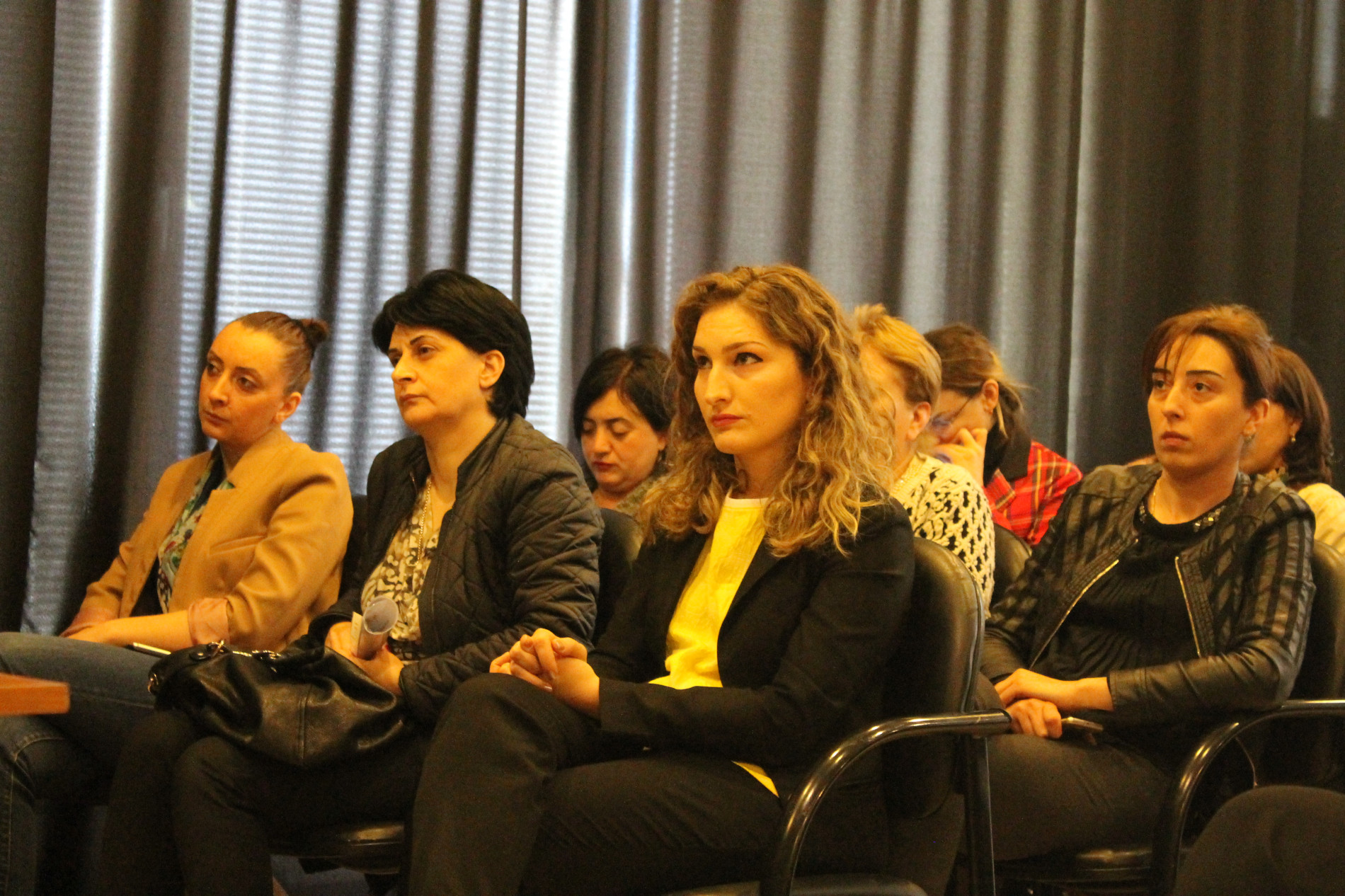
Civil Society & Inclusive Governance
PIN supports the development of an active and grassroots-based civil society which is able to constructively engage local authorities and other stakeholders on the issues that matter the most to local communities.
To do so, PIN works to scale up a well-proven mechanism of participatory local development that sees civil society organizations and other active citizens working together with institutions to develop good strategies for the social and economic development of their territories.
PIN’s approach is two-fold. Firstly, we aim to empower people and civil society organizations by providing the tools and knowledge required through trainings and workshops. Subsequently, PIN proactively supports dialogue among actors and provides grants to support social projects that are designed in a participatory manner - in particular, the ones developed by young people and municipalities to jointly solve community issues. With a ‘learn-by-doing’ approach, PIN also supports local institutions to increasingly finance local development themselves, fostering a future of self-reliance.
Past Activities

Civil Society Actors as Levers for a Sustainable Food System in Georgia
Cross (GRC), Parki ar Minda (PAM), and Eliots, aims to empower civil society
actors to support the reduction of food waste and increase food security in
Georgia, with a specific focus on the Tskaltubo municipality. Funded by the
European Union (EU), this initiative combines the expertise of diverse partners
to address pressing issues related to food waste and insecurity.
Objectives:
Overall Objective: Civil society actors are empowered to support the reduction of food waste and increase food security in Georgia. Specific Objective: Civil society actors and the local action group effectively contribute to reducing food waste and increasing food security of vulnerable populations in Tskaltubo municipality.
Target Groups:
- Local Action Group (LAG) Tskaltubo, registered Civil Society Organizations (CSOs), and informal groups in Tskaltubo and surrounding areas.
- Food Business Operators (FBOs) such as supermarket retailers, distributors, and HORECA actors in Tskaltubo and Tbilisi.
- Primary food producers (farmers) in Tskaltubo municipality and surrounding areas.
- Consumers and restaurant goers.
- Food insecure people in Tskaltubo and surrounding areas.
- Government entities including the Ministry of Environment Protectionand Agriculture (MEPA), National Food Agency (NFA), Ministry of Finance (MoF), Revenue service, Agrarian Committee, and Tskaltubo municipality.
- Food and Agriculture Organization (FAO).
Project Activities:
The project will draw on PIN’s and the Red Cross movement’s global expertise in food security, waste management, and climate change mitigation to pilot a food bank intervention. This intervention will redistribute unsold food items donated by FBOs to food insecure people in Tskaltubo. Additionally, it will empower LAG Tskaltubo and other local civil society actors to facilitate the provision of food to local food insecure people. This includes their involvement in identifying food insecure people, distributing food items, facilitating cooperation with local farmers, and running awareness campaigns on food waste and food losses.
Expected Impact:
- Reduction in food waste and farm gate losses.
- Reduction in greenhouse gas emissions.
- Decrease in food insecurity among the local population.

Media Literacy for Democratic and Resilient Society in Georgia
Project Area and Target Groups: The project area covers Kvemo-Kartli and Samtskhe-Javakheti regions. The local target group includes young people, civil society organizations, civil education teachers, independent media organizations.
Project Beneficiaries: Independent media actors, Youth-based organizations civil society organizations, young people from Kvemo-Kartli and Samtskhe-Javakheti regions, high-school teachers and representatives of education institutions.
Main Project Activities:
• Capacity building of independent media actors regarding on safeguarding and investigative journalism tools, reporting about conflict and crisis situations;
• Capacity building of youth-based organizations on the OWIS methodology and media literacy through documentaries;
• Organization of media literacy workshops by civil society organizations and informing young people about methods and means of combating disinformation, propaganda, fake information, etc.;
• Strengthening the capacities of high-school teachers and actors working in the education system in the target regions on media literacy;
• Creation of inclusive and diversified media content in non-dominant languages
• Implementation of media literacy initiatives based on community needs by young leaders and youth groups;
• Holding a media literacy festival

Resilient Civil Society and Media respond to the Ukraine War

Advocacy for Labour Rights Action in Georgia
Overall Objective: Research the implications and implementation strategies of the new labour code and identify gaps between labour policy and practice in Georgia.
Project Area: Georgia, Tbilisi and the Regions
Main Activities of the Project:
- Conduct the Research on Labour Conditions in Georgia.
- Prepare and Disseminate the Guide Book on Labour Rights.
- Prepare the web page on Labour Rights.
Since January 2021, People in Need Georgia has been implementing the project on Labour Rights. The project is funded by PIN Innovation Fund and will end in July this year.
The main objective of the project is to research the implications and implementation strategies of the new Labour Code and identify gaps between labour policy and practice in Georgia.
Main Activities of the Project:
The Project Implementation Team is conducting the Research on Labour Rights in Georgia. It is intended to prepare and disseminate the Guide Book on Labour Rights, Prepare the Feasibility Report on future funding opportunities based on the findings of the research and to prepare the web resources and the web pages on Labour Rights.
In collaboration with other stakeholders, the project will support the advocacy efforts and awareness-raising on Labour Rights in Georgia.

Tackling Indebtedness in Georgia through Czech Innovations
Partner: GeoWel
Overall Objective: To strengthen economic resilience in Georgia through a well-governed credit environment.
Specific Objective: To promote consumer-friendly and accountable debt practices in Georgia through sharing Czech experience.
Main Project activities:
- The first part of the project will focus on research, advocacy and communication at a national level, to facilitate a conversation on the nature of debt, the harm it causes and possible solutions. This will use policy research, mass-media and social-media engagement.
- The second component of the project will pilot a debt advisory guide book and training platform to allow CSOs to support vulnerable populations, to protect themselves and defend their rights.

EU COVID-19 Solidarity Programme for the Eastern Partnership
The EU COVID-19 Solidarity Programme has been launched to support the work of civil society organisations (CSOs) who continue to support their communities during these difficult times. People in Need (PIN), in partnership with the Netherlands Helsinki Committee (NHC) and AFEW International (AFEW), will support a range of activities in Eastern Partnership countries, including Armenia, Georgia, Moldova, and Ukraine. The aim is to mitigate the immediate impacts of COVID-19 and contribute to the longer-term socio-economic resilience of vulnerable groups.
Across the region, PIN will support CSOs that focus on broadening access to social services and economic opportunities, watchdog programmes, and local independent journalism. In Georgia, our focus is on rural communities, elderly people, women, youth, and minority groups. Our partners NHC and AFEW are specialized in human rights protection for persons in closed institutions and in supporting populations at particular risk from COVID-19.
At the first stage, we will provide financial support to CSOs to continue their important work. We will also support their role as advocates, so that the voices of marginalized groups are heard in post-pandemic recovery and development.

Strengthening Democratic Resilience in Georgia
Partner: Together, USAID and the Czech MFA will partner with a consortium of Czech organizations led by People in Need (PIN) and including the European Values Center for Security Policy (EVC) and Transitions Online (TOL) to strengthen the ability of Georgia’s independent media to expose and counter disinformation and malign influence.
Specific Objective: The aim of the project is to empower the Georgian people to build resilience against malign influence, including disinformation. The Strengthening Democratic Resilience in Georgia project focuses on countering disinformation to support Georgia’s continued development toward a citizen-responsive democracy.
Main Project activities:
- Empowering independent media through skills training on verifying information when reporting and producing content;
- Supporting media monitoring organizations to map and expose foreign influence and disinformation activities;
- Leveraging partnerships with local civil society organizations to promote media and information literacy amongst citizens of all ages;
- Engaging youth to promote media literacy and critical thinking among their peers.
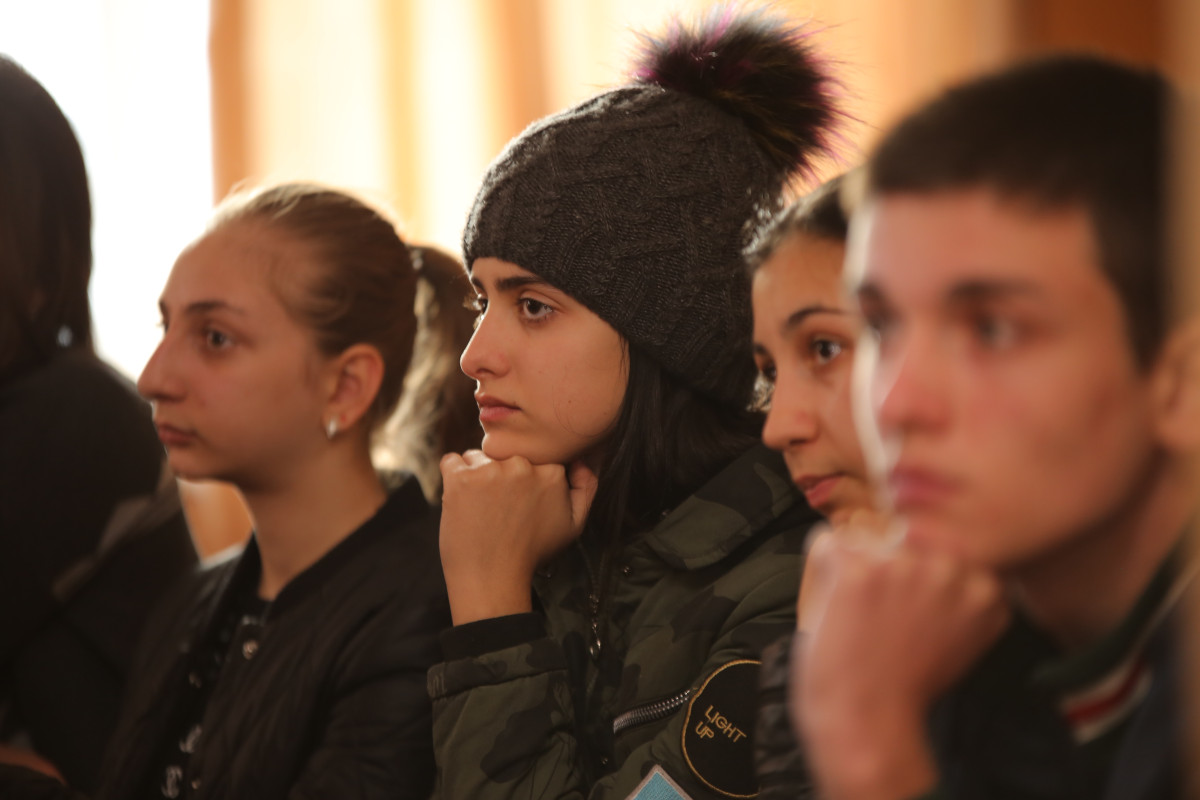
Strengthening Democracy through Media Literacy
Project Partner: Terjola Municipal Youth Center
Overall Objective: To increase media literacy skills and critical thinking among Georgian youth to empower them to actively engage in community issues and democratic processes.
Specific Objective: To enhance capacity of stakeholders in Imereti and Samegrelo regions of Georgia to promote media literacy education among youth.
Project Area and Target Group: The project is implemented in Imereti and Samegrelo regions. The local target group includes four youth NGOs and two municipal youth centres.
Project Beneficiaries: Youth-based organizations in target regions, Municipal Youth Centres, Media outlets in the region, Civic Education teachers, local youth and General Public.
Main Project activities:
• Develop a methodological guide on media literacy in five films, with a specific focus on media literacy challenges in Georgia.
• Ensure involvement of representatives of the target Regional Resource Centres of the Ministry of Education, Science, Culture and Sport of Georgia, representatives of the Civic Education Teachers' Forum and the Center for Professional Development of Learners in the development of the study guide.
• Capacity building of representatives of youth NGOs and Municipal Youth Centres through media literacy documentaries.
• Awareness raising of local media representatives of the target regions in the field of media literacy.
• Implement joint initiatives by youth groups and local media outlets to support media literacy in their communities.
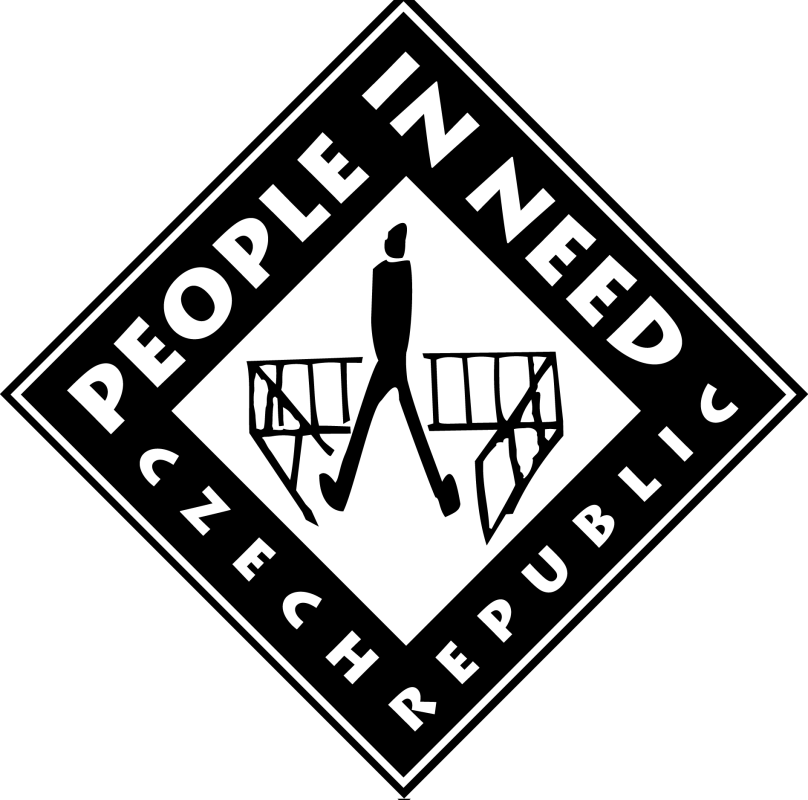
Civil society actors as drivers of change in South Caucasus and Moldova
People in Needs itself started out in 1992 as a grassroots humanitarian initiative by a group of Czech war correspondents who were no longer satisfied with reporting on conflicts and crises around the world and wanted to make a difference. Our co-founder and current director Simon Panek was a student activist during the Velvet Revolution, and the surge of creative energy, civic mobilization, and social responsibility that emerged during that time was the driving force behind who we are today.
That’s why we are drawn to like-minded civic actors who are committed to representing people’s needs, those who are seeking to influence real systemic change, and those who are raising new important issues that are not widely known or discussed or in the society. We recognize their diversity and do not envision them following a uniform path of becoming formalized civil society organizations similar to us today. On the other hand, we do believe that we have something to learn from and offer to each other.
In the first few months of this new project, we would like to get together and get to know each other. This exploration will be thematically and geographically open: we will be looking to get in touch with groups and initiatives across the region in sectors as diverse as climate change and environment, public spaces, community participation in local decision-making and budgeting, preservation of local heritage, quality of public services, anti-corruption, women’s rights, working conditions, voices of marginalized groups, and more.
We would like to work closely together to understand what is needed in order for them to have more impact, stronger representation of and accountability to their communities, and more effective mobilization of resources (funds, people, skills and data) for change.
After a transparent selection process, we will work with a small and diverse group of participants on developing ambitious but realistic plans for who they want to be and what they want to achieve in the upcoming year. We will offer funding linked to their strategic plans and specific initiatives. We will support learning by doing, thematic research, campaigns, exchanges and alliances. And next year, we will do it again, but better.
Some of the specific areas of learning we believe could arise during this process are: alternative fundraising, mobilization of volunteers, daily challenges of diverse groups working together, inclusion and resolution of internal disputes, making plans and making them happen, developing a learning culture, internal accountability and building trust with wider community, harnessing creativity, art and technology for change, building alliances, deciding on what position to take in dealing with public authorities, local businesses and others who could help or hinder your efforts, and many others.

Reintegration Assistance Program through Business Start-up, Employment or Vocational Training
Donors: L’Office Français de l’Immigration et de l’Intégration (OFII)
Purpose of the project:
To provide technical and financial assistance to migrants returning from France through business start-up, employment, vocational and professional qualification development to enable them to generate income and resettle permanently in Georgia.
Direct target groups of the project:
Migrants returning from France.
Objectives of the project/expected outcomes:
- The migrants legally returning from France are supported in permanent resettlement in Georgia, in accordance with their profiles and needs through funding business start-ups, providing vocational and qualification development opportunities to contribute their income generation.

Human Rights through Documentaries
For the younger generations, we believe it is important for them to be empowered to explore new ways to approach their future, fulfill their hopes and address the challenges of the future. One way we are trying to support and empower youth in Georgia is through human rights education, and specifically human rights education through the medium of documentaries.
‘Human Rights through Documentaries’ is a project designed to raise awareness and foster healthy discussion among youth around important issues related to human rights. Together with our project partner the Human Rights Academy of the Public Defender of Georgia, we support Georgian civil society organisations to promote and protect human rights and empower young people to promote human rights in their communities.
The project is funded by the Transition Promotion Program of the Czech Ministry of Foreign Affairs, and follows in the footsteps of PIN’s human rights education work in the Czech Republic through the One World Human Rights Film Festival, as well as in countries such as Serbia, Armenia, Mongolia and Moldova through other documentary based human rights education projects.
In Georgia, the idea is simple. Local organisations host small events at which young people can gather and watch powerful documentaries. After each screening, a group discussion on the topics raised in the documentary is facilitated, and the young audience is encouraged to share their thoughts and listen to the ideas and opinions of others. The group facilitators are trained on the Teaching through Film methodology, so that they can facilitate a discussion that generates interest, develops autonomous thinking and encourages mobilisation. The facilitation of the discussion is important, especially when it comes to approaching youth about delicate and important issues such as human rights. By 2020, 1500 young people will have taken part in this Human Rights through Documentaries project.
“In Georgia,” says Nato Antia, the Project Manager of the Human Rights through Documentaries initiative, “we are working in Gori and Senaki Municipalities. These are conflict-affected areas where high numbers of conflict-affected families and displaced people live. We are working with young people who are not involved in other activities, not engaged in projects and probably not very active at school as well. We want to show them the power of documentary films for them to become actors of human rights in their local communities.”
“After the screenings, we support young people to implement their initiatives to address local challenges. We really count on the creativity and honesty of young people. We want to give them space for innovation. The topics of the documentaries were selected through an online survey that sought to understand which topics are most interesting for young people. Gender balance and environmental rights were the most requested.” Antia describes the project in a nutshell, “the messages we want to youth to hear are: respect diversity and encourage a positive change in your local community.”

Advancing Regions for Sustainable Development (ARSD)
Regional development aims to reduce regional disparities by supporting employment and wealth-generating economic activities in regions. It is not a simple concept in theory, and it is something that is even more difficult to put into practice. In the Georgian context, decision making about development has traditionally happened top-down and prioritised cities, particularly the cap down and prioritised cities, particularly the capital, over more rural, regional areas. For example, in developing tourism or infrastructure, the Government has been the main deciding body, choosing what is developed and where – but times are changing.
In Georgia today, municipalities have greater autonomy to develop the regions and the Government put into place a Regional Development Strategy in 2015, which allows municipalities to set the priorities for investment in their region under a Regional Development Fund. As People in Need, we believe that the best decisions for development are the most informed ones and involve input from different groups of society. That is why People in Need and the Czech Development Agency are supporting regional development in Georgia by commissioning extensive research and facilitating different regional and local groups to come together to make choices about the future of their region. By empowering local and regional groups and equipping them with the skills needed to assess the needs of people in their region and develop strategic plans to address them, the voices of local communities can be heard. These local and regional groups include Local Action Groups (which are made up of community members, private sector representatives and local authorities), civil society organisations, regional universities, think tanks, and municipalities. As part of this initiative, we are supporting them to come together and listen to each other’s ideas in order to make plans for their region together.
This is Natia, a member of a Local Action Group in Kazbegi. The regional centre of Kazbegi municipality is Stepantsminda that is a small town of just 2,000 residents located in the northeast of Georgia close to the Russian border in a region called Mtskheta-Mtianeti. Not only is Natia participating in this process to jointly develop the region where she lives, she is also running a small local business at the same time. She is passionate about what she does and determined to improve conditions in her region. She is contributing individually and jointly to her wider community, and we think her voice should be heard.
Hear what she has to say! Video
#research4change
#together4change
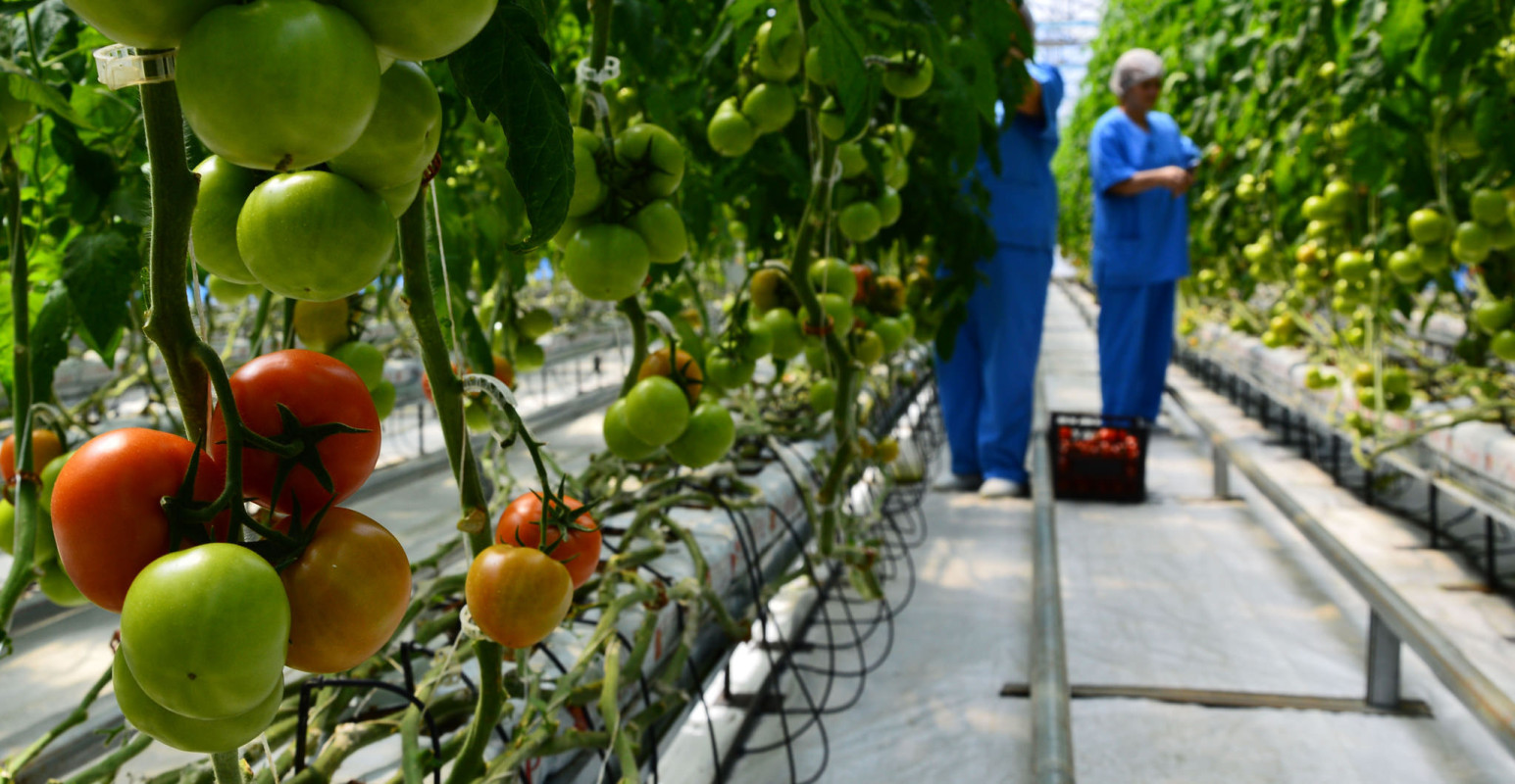
Civil Society Organisations Supporting Free Trade with European Union
Overall, the project is a contribution to the acceleration of Georgia's European integration. The project aims at strengthening region-based civil society organizations (CSOs) along the implementation of Deep and Comprehensive Free Trade Area (DCFTA) - part of the Association Agreement of Georgia with the European Union, and along the implementation of the national policy on small and medium enterprises (SME).
Still, a very small number of Georgian companies (according to some surveys only 6%) trade with the EU under the DCFTA. Region-based SME and particularly rural entrepreneurs with limited access to expertize, finance and difficulties entering new markets have to eventually comply with DCFTA regulations. In this regard, regional CSOs can serve as effective vectors of democratic and socio-economic development in rural regions.

Enhancing the participation of regional CSOs in policy dialogue on social inclusion in Georgia
Our project “Enhancing the participation of regional CSOs in policy dialogue on social inclusion in Georgia” was supported from the European Union and Czech Ministry of Foreign Affairs and was active in four municipalities of Georgia. The main aim of the project intervention was to empower the active citizens and facilitate their dialogue with municipalities in order to create better social services. The projects were implemented by civil society organizations and local governmental bodies and were focused on the development of long-term social services for children, youth, IDPs, elderly, people with disabilities and other vulnerable groups, in order to improve the quality of their lives.
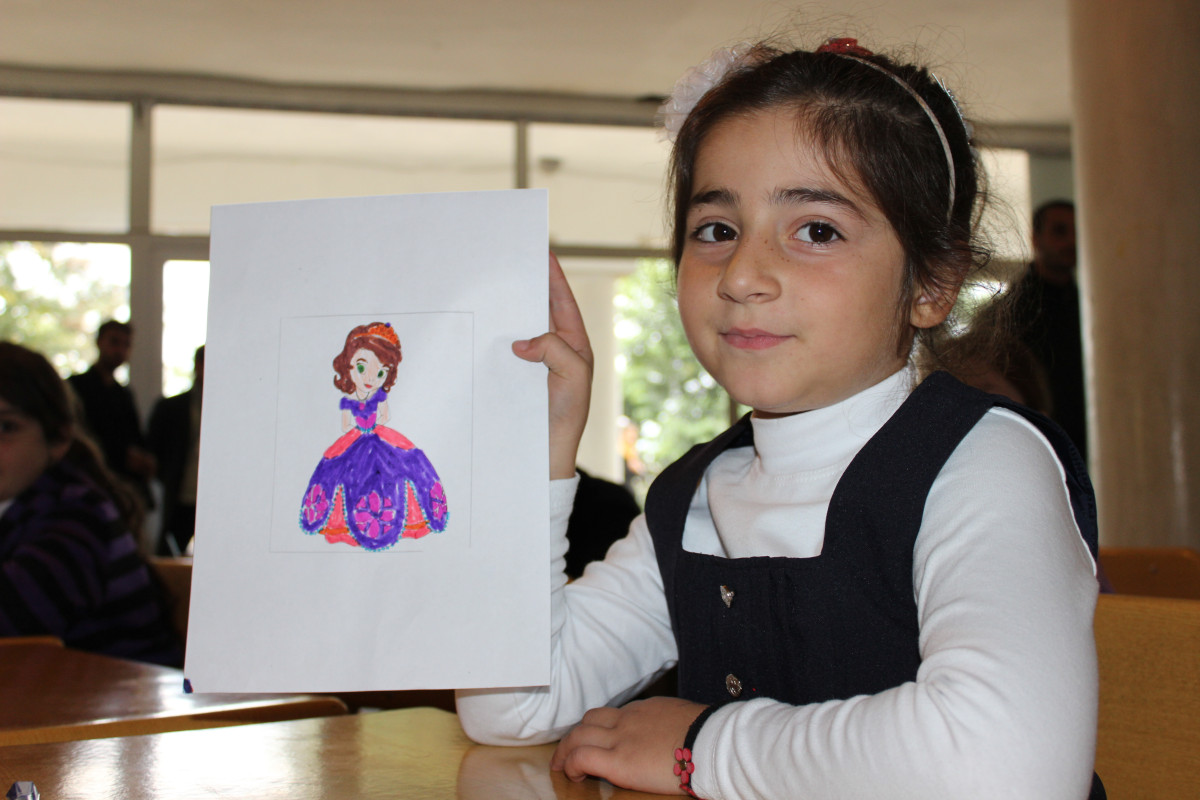
Support to the Inclusion of Youth with Disabilities
The project will support and complement the State's efforts to coordinate the actions of the individual ministries. The project will seek to achieve change mainly on the national level. The core activity of the project is to build a capacity of the state institutions and facilitate cooperation among themselves and with the nongovernmental sector. As a result of research, capacity-building and networking activities, the support provided to disabled youth through education and employment services will be improved.
